Steemjet || Practical Ways to Stay Healthy Through Diet
My heart-felt greetings to all steemjetters!
Here is @newhyt. Today, I want to write about diets and how they can help us shed unwanted body weight courtesy of #steemjet
Following this manual orderly has the potential of making you shed as much as 21 pounds of excess body fat in 21 days.
CAVEAT: the information here are helpful. However, they are not meant to take the place of medical advice where that is needed. Actions and inactions alike shouldn't be taken solely based on the contents of this manual. On this or any other nutritional and exercise routine, before you begin, always endeavor to contact your physician as that will help greatly in keeping you on the right path and ensuring that what you are about embarking on is the most appropriate option for you.
All the information here and opinions expressed therein are carefully tested and, in line with the best results, have proven to be accurate. But this must not, in any way, stop you from seeking an advice from your physician before ever starting.
GETTING STARTED
Some amongst us are held down by the ever growing discrepancies in the information they get concerning their health, nutrition and overall wellbeing. There are thousands of diets and nutritional plans. These things just keep coming and when you can't find one that perfectly suits you, they leave you more confused than they met you. There are these self acclaimed gurus who will not stop giving us powders and quick-fix pills, said to be potent enough to make us lose weight in magical ways. Finally, the only end result is confusion.
How then do we know who is right and who is wrong?
Facing the fact, weight-loss business is a multi-billion dollar marketplace that makes its growth by keeping us guessing. Lately, there has hardly been a month without something new – bigger or better, or both. They always come with colorful promises of making us lose weight without much stress. It's the frequent barrage of these new products and the manner through which they come that keep people confused.
But this is the thing…
The actual “secret” behind losing or adding weight has been discovered a long time ago, and right from then, that secret has helped millions of people shed excess weight and get back to shape. Sadly, this multi-billion dollar diet business along with mainstream medicine is doing pretty great in trying to permanently conceal this secret.
Even though some people out there have a faint clue on how to lose weight, they mostly do not know how well to take good advantage of any effective weight-loss method to really drop the excess pounds pretty fast. That clue reeks of ambiguity because the next version of a diet timetable from the very stable of this multi-billion dollar diet business will most likely contradict the last. Such people have, therefore, left all at the mercy of mainstream medicine where they get promises of magical pills. When that also fails, they give up hope.
Should I just tell you that these diet and fitness industries simply do not want you to learn the true solution to what you are looking for? The reason is not far-fetched. If everybody learns, they are out of business. Nobody will buy their hyped products again.
People have asked me: "Isn't it dangerous to lose weight this fast?"
Well, I don't know why they think losing weight should best be at a snail pace because in reality, it should be the other way round. The more excess fat you have in your body, the harder it will be for your body to function optimally. The heart will be strained; the body will be weighed down with loads and made prone to diseases. And mindful of the health problems associated with this excess body weight, the faster you shed them, the better for the body.
Who says losing weight is best at the rate of 1 pound per week? I can't tell where they got that notion from. Experts in this field will rather examine the means and not the rate.
There might have been issues that actually led to that notion and I'm happy to announce to you that all that are most likely addressed here in this book because losing weight through the methods in this book has no negative implications whatsoever. It is based on rational thought, medical science and proven real-life results. Now, you can be rest assured that not again will you need to buy another fancy gizmo, diet book, or even magic pill to lose weight.
Research shows that predominant amount of overweight people are carrying around 10-20 pounds of excess body fat. It's also known that most diets fail. From my experience, these diets fail because they take the slow, boring approach to weight loss. When weight loss occurs at merely 1 pound per week, the rewards for the efforts required to get there really aren’t impressive. I understand that for a diet to be promptly successful, it must be able to produce very rapid result. When these results come quicker, the dieter receives commendations.
It takes about 21 days to develop a new habit. It could be 21 days of making it a habit to eat healthy, 21 days of going to the gym, 21 days of doing any of those things you were not used to. If you are consistent, it will become a habit.
Very often, when we try to bring a new habit into our lives, (emphasis on good habits) we view it in unmanageable light. Because of this, and a few other factors, these new healthy habits never get off the ground. Rather than focusing on the number of days required to make it one of those things desired in our lives, we tend to burden ourselves with the thought that we'll have to live with this routine for the rest of outlives.
Today, I want you to first convince yourself that what you are starting will only have to be a task for 21 days. Keep your eyes off "forever" because within 21 days, the whole process would have become a tasteful habit of good eating and exercise routine and not a task anymore. You must make conscious effort not to go back to whatever was the old habit that got you overweight in the first place. The idea behind this book goes beyond helping you to burn excess body fat; it's also aimed at helping you develop healthy habits, such as proper dieting and regular exercise for some life-long benefits.
We have been using the term “weight-loss” generally when we go on a diet. Some are actually with the only intent to watch the scale drop. It's constantly necessary to focus particularly on losing fat instead of the precious lean body mass because losing these lean body mass can be exceedingly detrimental to your health.
Your lean body mass is anything that is not fat, including muscles and organs. Fasting is one fast way to lose lots of body mass. Unfortunately, this is not the result anybody who wants to truly shed fat will want to have. When you fast, everything shrinks, bone, muscle, organs... just everything. But they are quick to come back as soon as you start eating. It's dangerous to adopt fasting as a means to losing weight because not only is the result always unsustainable, the consequences can be severe. It can lead to many things including death.
In my findings, I've seen lots of diets out there that make great success in helping people achieve weight loss. Sadly, most of those diets are not exactly what they seem to be. From the way they are formed, greater portion of the weight that is lost is not actually body fat but lean body mass. And this directly results to a slow running of the body metabolism. Here, we are particularly interested in optimizing the functions of your metabolism.
1. Stay Away from Sugars and Starches, or At Least Cut Down on Them
Now let's look at what the body wants and those it doesn’t.
The body needs nutrients – minerals, vitamins and water for good health and proper functioning. Fortunately, our bodies are capable of producing lots of these needed nutrients on their own. Those the human body can produce on its own, we call nonessential nutrients because the body is able to produce them itself and it’s not essential that we go out and get them from the food we eat.
On the other hand, essential nutrients are those nutrients that we must get from food. It's essential to get these nutrients from our everyday intake to sustain life.
Examples of essential nutrients include water, fats, proteins, minerals and vitamins. A very common nutrient that is deliberately omitted here is carbohydrate. Biologically, we can do without deliberate focus on consuming any specific amount of carbs because even those depend on fruits alone still get their desired amount of carbs to generate enough energy for the body.
You will need to start by cutting down on sugars and starches. They are those foods that stimulate secretion of insulin the most. If you have not known, insulin remains the major fat storage hormone in the body.
See: http://m.ajcn.nutrition.org/content/91/3/578.long
When insulin level comes down, it becomes easier for fat to get out of the fat stores and the body starts burning fats instead of carbohydrates. A second benefit of bringing down the level of insulin is that your kidneys shed excess sodium and water out of your body, which reduces bloat and unwanted water weight. It's very common to see people losing as much as 10 pounds or even more in the first week if cutting down the level of carbohydrates they consume.
Cut the carbs and lower your insulin level, you will automatically begin to eat less calories and without hunger. Simply put, bringing down your insulin level puts fat loss on "autopilot."
THE MESSAGE HERE:
Lowering the amount of sugars and starches (carbs) you consume will, in the same proportion, lower your insulin level and your appetite will drop. This way, you will lose weight without feeling starved.
2. Eat Protein, Vegetables and Fat
Protein deficiency in your diet can lead to a number of health problems such as gallstones, heart problems, arthritis, organ failure, muscle deterioration and it can be something as bad as death. Be mindful of the amount of protein you eat each day.
We are talking about bringing up the quantity of protein you consume daily to a satisfying amount, while at the same time dropping the amount of carbs to the minimum there can be.
Rightly put, this is about eating the right quantity of the right foods at the right time. When this is done correctly, you are able to put your body into a proper fat burning mode.
You have known that the primary nutrients humans consume are protein, carbohydrates and fat. What you may not have is the full understanding of the role of each of these primary nutrients in our body and how they contribute to either gaining or losing weight.
The foundation of our body’s' cells, tissues and organs are proteins. They are exceedingly essential to our muscles, skin, hair, organs and hormones. While the human body can survive without eating more carbohydrates and fat for extended periods, deficiency of protein in your diet can cause depletion of your muscle tissues and organs, and this will eventually lead to death if not checked. Having known the irreplaceable importance of proteins in our body, it's a surprise how some people chose to be getting most of their calories from high-carbohydrate diets.
Several research have shown that the recommended daily allowance for protein consumption is quite lower than it should be, especially for the people that engaged in regular exercise routine. What these studies have shown is that people following the recommended daily allowance of protein consumption while engaging in regular physical activities, were actually losing valuable muscular tissues because they don't get enough protein in the body to repair and rebuild their muscles after their workouts.
Proteins are made up of amino acids. There are exactly 20 amino acids that make up ALL human proteins. Out of these 20, the body can only produce 12 by itself, for which we have considered them nonessential. The remaining 8 come directly from the food we eat. These include: Lysine, tryptophan, leucine, isoleucine, methionine, phenylalanine, threonine and valine.
These are the things we get when we consume meat, egg, legumes etc.
Always try to have a protein source in each of your meal. It should also be the same with a fat source and low-carb vegetables. Constructing your meals daily in this manner will automatically bring your carbs intake down into the recommended brackets of 20-50 grams/day.
Protein Sources:
Meat - Beef, pork, chicken, lamb, bacon, etc.
Fish and Seafood - Salmon, trout, lobsters, shrimps etc.
Eggs - Omega-3 enriched or pastured eggs are best.
The significance of eating good amount of protein cannot be overemphasized. It has been known to boost metabolism by 80 to 100 calories/day. Also, high protein diets reduces obsessive thoughts about food by as much as 60%, reduces desire for late-night nibbles by half, and makes you pretty full that you will certainly begin to eat something close to 441 fewer calories/day. This is just by adding enough protein to your diet. When we talk about losing weight, protein is the king of nutrients.
Low-Carb Vegetables:
Broccoli
You can call this a super food. As for it if you don’t know it. It’s a cruciferous vegetable, somehow related to cabbage. It’s called supper veggie because of its enormous health benefits. Research has shown how well Bronccoli can bring down the level of insulin.
Cauliflower
This is one of the most known low-carb vegetables. Just 100 grams of this contains only as low as 5 grams of carbs.
Spinach
Spinach has great health benefits. Study has shown that beside its role in helping to shed excess body weight, it equally does great in helping to prevent damage to the DNA.
Kale
Kale is extremely nutritious. It’s filled with antioxidants like quercetin, kaempferol etc. This can help prevent heart diseases by lowering the blood pressure.
Brussels Sprouts
Pretty delicious, grams of Brussels sprouts provides lots of RDI for vitamins C and K.
Lettuce
This ranks amongst the lowest carb vegetables but rich with various vitamins.
Cucumber
This is equally low in carb but loaded with refreshing contents. The carb is so low that 100 gram of cucumber has only about 1 gram of carb.
Celery
Low in digestive carbs, celery contains luteolin – a very important antioxidant.
Do not be afraid to fill your plate with these low-carb vegetables. Just go ahead and take as much as you need. You can eat huge amounts of them and still not go over 20-50 net carbs/day.
When you take a diet based on meat and vegetables, you have eaten lots of fiber, vitamins and minerals which are essential for good health. There is no strong need for grains in the diet.
Fat Sources:
Olive oil
Coconut oil
Avocado oil
Butter
Tallow
You may eat 2-3 meals per day. If you get hungry in the afternoon, it won't harm you to add a 4th meal. Don’t worry about eating fat. Trying to cut down your carbs intake and at the same time, cutting down on fat can be a recipe for failure. It will most likely force you to abandon the plan by making you feel terrible.
Stick to the best cooking fat, which I'll say is coconut oil . It has rich content of the particular fats known as medium-chain triglycerides (MCTs). These fats are known to be more fulfilling than the rest, and can also boost metabolism significantly.
You have no reason to be afraid of these natural fats. Intensive studies, done to this effect show that saturated fats won’t raise your heart disease risk at all.
See: http://m.ajcn.nutrition.org/content/early/2010/01/13/ajcn.2009.27725.abstract
Animal protein in general – meat, fish, eggs are considered complete proteins, while vegetable-based ones are known to be incomplete protein. To get enough essential amino acids from vegetable protein, you will need to combine several different food groups that can give different portions of different amino acids.
With the way protein is naturally structured, breaking it down and processing it take lots of energy as well as time. So it takes from the body greater energy to digest protein than it does for carbs and fat.
Because it takes longer time to break down, process and assimilate protein, the amount of time it would take to empty the stomach if it was majority of carbs will as well increase. This, in effect, will help you to feel full longer and avert frequent hunger.
The body, at each time, may not use up to 60% of the protein we eat. What this means is that the other 40% will go out as waste because the body does not store protein like it does for carbs and fat. So it's safe to eat as much protein as your body needs.
Having protein in your meals causes your body to release a hormone called glucagon. The work of glucagon is to slow down the bad effect of excess carbs from going into your fat cells. This it does by slowing down the rate of absorption of these carbs.
Secondly, each time the body releases glucagon by consuming protein, it squally works to stimulate the burning of fat by freeing up some stored body fat to be used as fuel.
Evidently, when you increase protein consumption and decrease the amount of carbohydrates you take, you will gain from a double fat-burning effect. On the other hand, when the body does not have carbohydrates to turn to, in fueling the activities of the body, it begins to use stored body fat. This is even as the release of glucagon into the body will have the added effect of reducing the fat stores which the insulin works to preserve.
Don't mistake fat for a bad thing in the body. It's sad that it has received a bad rap over the years. It hs been so much that it has become ingrained in people's minds to intuitively go for anything that says “low fat”.
Only at face value, does the notion that fat makes people fat make sense. Perhaps, the conveyors of this message never considered how calorically dense fat actually is. While a gram of fat contains 9 calories, that of protein or carbohydrates are only 4 calories. Fat by itself does not make us fat. In trying to refine our diet, we should always endeavour to take into account the many important roles that fat plays in different parts of the body, one of which is its function as the major fuel of the body.
Carbohydrates, no doubt, are huge source of energy in the body. The fact remains that carbohydrates are mostly unwanted. They are classified into two types – Simple and Complex.
Simple carbohydrates, known as simple sugars are those found in refined sugars and the foods they are made with like candies, cookies etc. They are also in foods like milk and fruits.
Complex carbohydrates, known as starches include grain products such as cereals, pasta, bread, crackers, garri and rice. Like simple carbohydrates, complex carbohydrates can also be refined or left unrefined. Those refined ones are considered to be less healthy as the refining process removes much of the vitamins, fiber and protein contents. Refined or not, carbohydrates cause spike in the blood sugar level. This spike is the major cause of excess body fat.
Eating carbohydrates is what makes us fat. The way you will burn fat and stay lean is to accept and hold this truth sacred. Restricting carbohydrates in your diet will make you leaner and healthier.
And should you increase it again afterwards, you will become fatter. This is the exact human body's responses to the kind of things we eat.
Now, see how it works:
When you eat carbohydrates, especially those that are sweet or starchy, your blood sugar will increase rapidly. When your blood sugar increases, your pancreas quickly secretes insulin into the bloodstream. The job of insulin is to bring your blood sugar back to normalcy. To do this, it moves the sugar out of your blood and into your muscles, liver and fat cells. If this insulin isn't there, this high blood sugar known as glucose would simply become toxic. You must have known that diabetic patients need to add insulin to their bodies to keep them alive and functioning.
So, with regards to keeping us alive, insulin is a good thing. It alleviates high blood sugar levels when they are triggered by carbohydrate consumption.
Nevertheless, insulin is also problematic with its ability to hamper our efforts to lose weight.
As mentioned, insulin does the job of moving sugar out of the bloodstream when the blood sugar becomes high. This sugar is then moved into the liver and muscles to serve as energy when needed. But it doesn't end there, insulin also serves as storage hormone. This means that the presence of insulin in the bloodstream, which happens when you consume much of carbohydrates, is to always break down and store those unused amount of carbohydrates away from the bloodstream. By moving these contents into our cells, these cells get bigger and so do we.
Just a bit of the downside, not only does insulin move those excess carbohydrates and fat into our cells, it also puts a brake on the body’s ability to burn the fat that is already stored in those cells.
So, retaining a high level of insulin in the bloodstream, which happens when much of carbohydrates are consumed, will force the body to be storing fat instead of burning it. This simply means that you cannot be consuming a carbohydrate-rich meal and be burning fat at the same time. The body is either storing or burning fat, depending on the food taken. Now that you know this, you are expected to take control of the level of nutrients that go into your body daily.
Worthy to note is the fact that our body needs energy at all times, whether we are working, sitting or sleeping, the body uses energy to keep us alive. It can either get this energy from carbohydrates or fat. There is a constant flow of fat into the cells. It comes in the form of fatty acid and makes itself available to be used for energy. The only problem here is that this fat can never be used unless the insulin level is down. Sadly, insulin will not be down as long as you keep eating much of carbohydrates. The body turns to fat for energy when it runs out of carbohydrates.
The guarding insulin in the bloodstream gives a chance when the blood sugar normalizes. This is when the fatty acid starts getting prepared to be used as energy. But soon again the sugar level will drop. Low blood sugar level is what sends signal to your brain that you are hungry. And when hungry, you start eating again before those fatty acids can be burnt up. If you eat another carbohydrate-rich meal, those fatty acids will automatically be stored back. This is because your body will secrete another volume of insulin to guard the blood by normalizing the sugar which just came from the food you ate. This sugar will now be used for energy instead of the intended fatty acid. This is how your consumption of carbohydrates constantly prohibits your body from burning fat.
THE MESSAGE HERE:
Get each meal from a protein source, a fat source and a low-carbs vegetable. By doing this consistently, you will find yourself into the brackets of 20-50 gram carb range and drastically lower your insulin levels.
3. Regular Exercise
Thrice a week isn’t bad. To lose weight, exercising is not actually compulsory, but it is recommended.
In the absence of running, jogging, swimming, you could choose going to the gym. Start each round with a warm up. Then do some weightlifting if that suits your body, or choose from the many available exercising options. If you are a new person there, approach a trainer for advice.
THE MESSAGE HERE:
You can do without exercise while losing weight, but to get the best of results, exercise shouldn't be ignored because that is what prevents your metabolism from dropping low.
4. Take Good Volume of Water Daily
I know lots of people who are guilty of not drinking enough water. Drinking adequate volume of water each day is very essential for weight-loss. If you have been in the habit of not drinking enough water, change it today, otherwise you won't get the full weight-loss benefits that you seek.
First of all, water helps your kidneys to work at full capacity. If the kidneys are not working at full capacity because of water deficiency, the liver will immediately start to help out. The problem here is that the liver itself has full time responsible of metabolizing fat in the body, and when it begins helping out the kidneys, the ability to do its own job properly is hampered.
Don't forget that water has weight too. It's partly responsible for bloating. So when you adopt this approach of taking enough volume of water daily, you should also endeavor to complement that with that will not encourage water retention. Carbohydrates cause water retention and retaining water in your body is certainly not what you want. Another reason why you should make protein king in your diet because it makes the body release water so easily.
As soon as you restrict your carbohydrate consumption, you will start to let loose of that stagnant water that was trapped in your body.
Mindful of this, it's necessary that you take enough water daily to avoid dehydration.
Secondly, water acts as your body's filter, flushing out dead cells and waste contents.
When you restrict the quantity of carbohydrates you eat and increase the volume of water you drink, your body will stop storing water and will begin to use it more effectively. The result you get here is lighter and cleaner body.
I'll advise you to drink 8-10 glasses of water each day. This should be about half a gallon of water. You may now see it as much but I tell you, once you drink that amount for a while, you will be tempted to go for more. Good thing is that your body won't even retain it so long you make protein king of your diet. Rather, your body will use the water for cleansing and flushing out all forms of impurities.
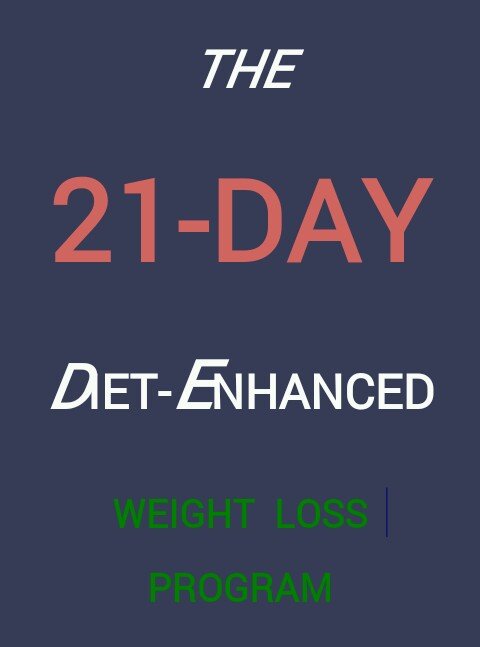
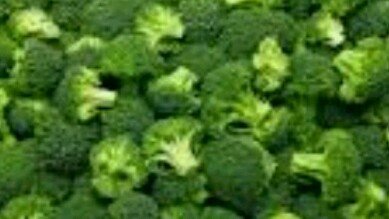
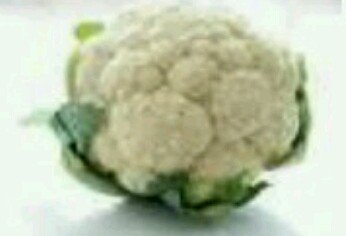


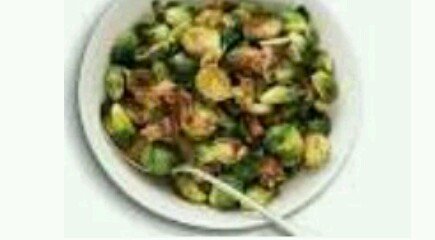
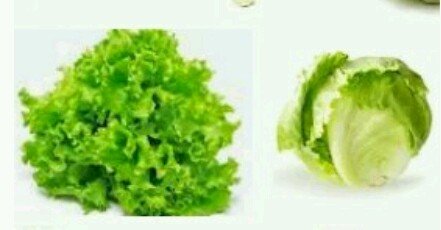
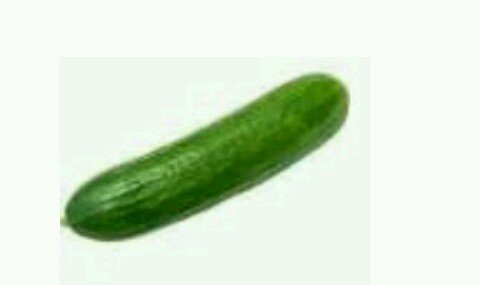

This post has received a 0.63 % upvote from @drotto thanks to: @newhyt.